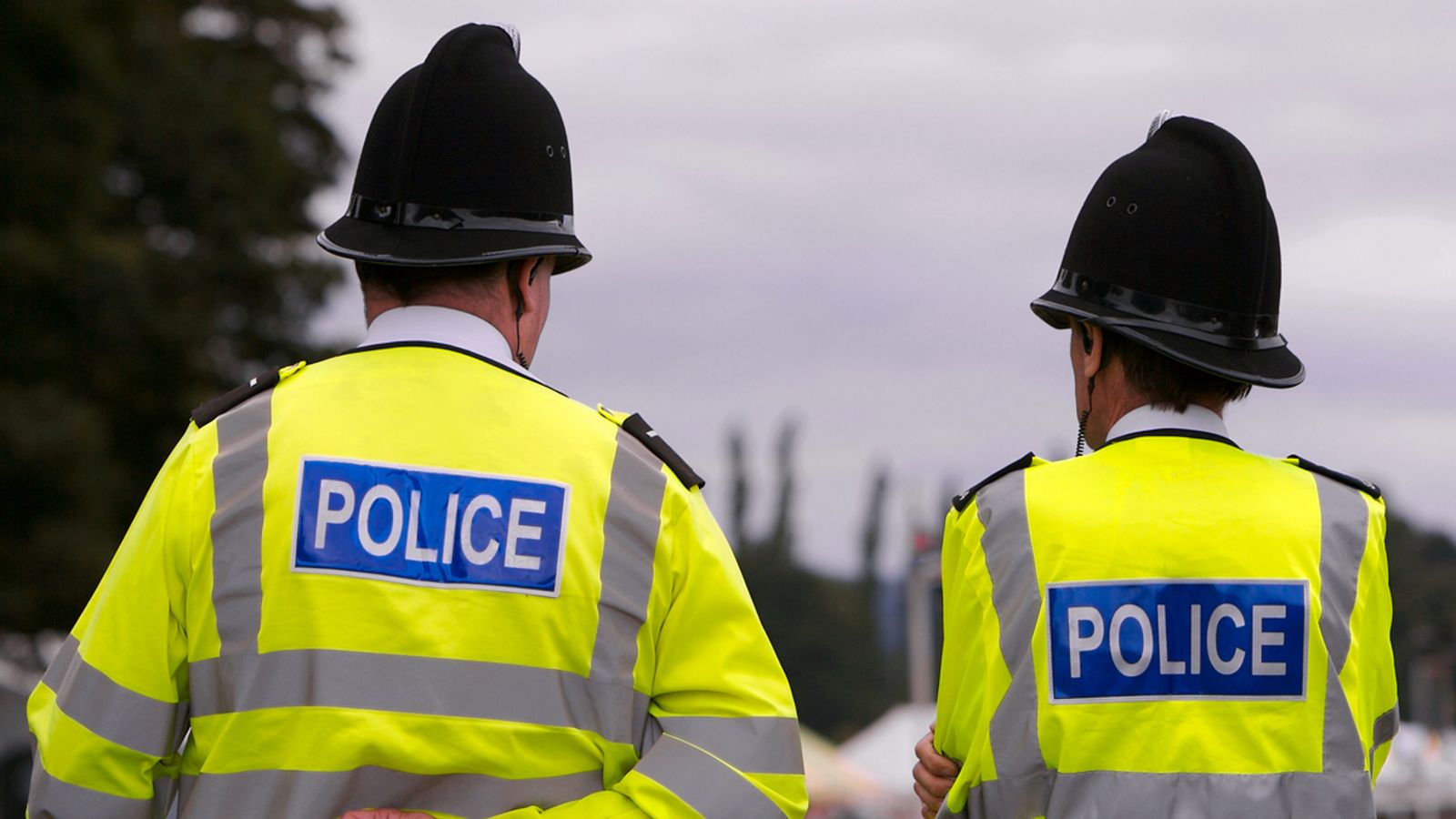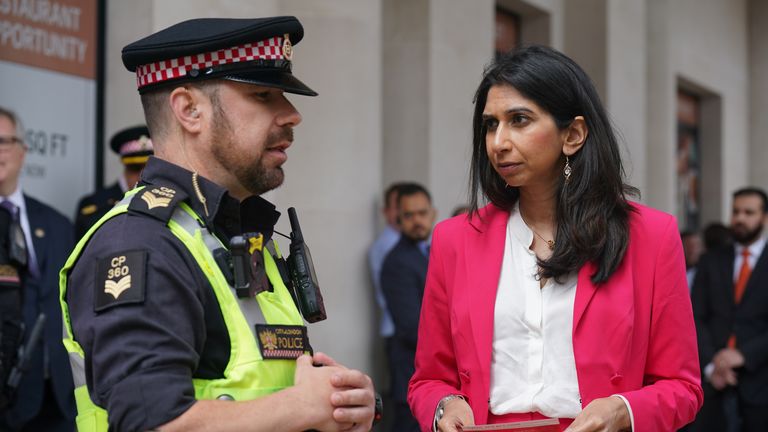Police chiefs issue warning to Home Secretary Suella Braverman following order to investigate every theft


Police chiefs have warned the home secretary they must have “operational independence” when deciding how to respond to crime.
The National Police Chiefs’ Council (NPCC) was responding to Suella Braverman‘s announcement that police forces in England and Wales must investigate every theft as part of a crackdown on crime.
The home secretary said it was “unacceptable” that crimes such as shoplifting, criminal damage and phone or car theft have been treated as “less important”.
On Monday, forces committed to follow all “reasonable lines of enquiry” following offences such as burglary or theft, in an effort to improve investigations and drive down crime rates.
However, in an open letter to Ms Braverman and policing minister Chris Philp, NPCC chair Gavin Stephens warned that pressures on policing was having an impact on the criminal justice system as a whole and that “more needs to be done together”.
Mr Stephens said that while the NPCC and the College of Policing had worked together to update the guidance on reasonable lines of inquiry, “consistency across forces vary”.
“Growing demand as well as the increasing and changing nature of crime means consistency across forces varies and approximately 21 of 43 forces still have less officers than in 2010,” he wrote.
“It is therefore right that police chiefs have operational independence and are responsible for making difficult decisions around how best to respond to the breadth of priorities of local communities.”
Please use Chrome browser for a more accessible video player
2:27
‘Police must investigate every theft’
Mr Stephens said that while he welcomed the government’s commitment to recruit 20,000 police officers in England and Wales, he pointed out that since 2010, the first year of the Conservative-Liberal Democrat coalition, the number of police officers has only increased by 2.6% – compared with a 25% increase in recorded crime.
Advertisement
The NPCC chair described neighbourhood policing as the “bedrock”, adding: “We believe that the number of neighbourhood officers should be increased.”
The commitment to follow all reasonable lines of inquiry – agreed by the Home Office, the NPCC and the College of Policing – comes as part of a “crime week” of policy announcements planned by the government.
‘Criminals must have no place to hide’
In her announcement, Ms Braverman said she had “heard too many accounts from victims where police simply haven’t acted on helpful leads because crimes such as phone and car thefts are seen as less important”, adding: “That’s unacceptable.
“It has damaged people’s confidence in policing. Criminals must have no place to hide.”
Read more:
Met Police IT security breach could do ‘incalculable damage’
Hundreds of UK police officers have criminal convictions
Labour branded the announcements a “staggering admission of 13 years of Tory failure on policing and crime”.
“Pursuing reasonable leads like CCTV is what the police should be doing, but – because of abysmal Tory management – over 90% of crimes go unsolved, the proportion of crimes prosecuted has dropped by more than two thirds and more criminals are getting off,” a Labour spokesperson said.
“The fact that the Tories are boasting about asking the police to do the basic minimum that victims of crime should rightly expect, whilst failing to tackle the underlying problems they have caused shows how badly they have failed over the last 13 years.”